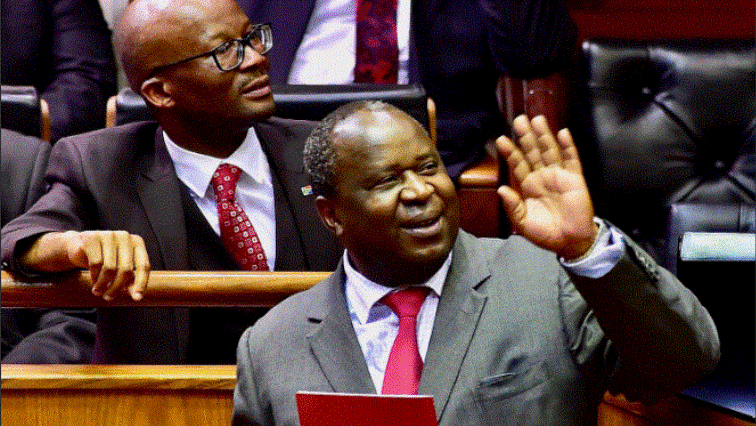South Africa’s finance minister on Wednesday vowed to tackle debt and rebuild government institutions after the turbulent presidency of Jacob Zuma, as the ruling ANC party prepares for next year’s election.
Tito Mboweni, delivering the medium-term budget statement to parliament, said South Africa “stood at a crossroads” as it faces rising public debt, low growth and record unemployment.
“We cannot continue to borrow at this rate,” he said. “We must choose to reduce the structural deficit.”

President Cyril Ramaphosa, who took power when Zuma was forced out over graft allegations in February, has pledged to revive the listless economy by attracting $100 billion in foreign investment and cracking down on corruption.
A judicial inquiry is currently probing allegations that Zuma oversaw the systematic plunder of state coffers and of state-owned enterprises during his nine years in power.
“We must repair damaged government institutions, as their failure impacts poorer households the most,” Mboweni said.
“There have been governance challenges at key state institutions. State institutions are being repaired and renewed, but serious governance problems exist across the public sector.”
Mboweni is the country’s fifth finance minister in three years after his respected predecessor Nhlanhla Nene resigned just two weeks ago.
Nene stood down after admitting to undisclosed meetings with the Gupta business family at the heart of graft allegations against Zuma.
Mboweni on Wednesday cut South Africa’s 2018 growth forecast sharply from 1.5 percent to 0.7 percent this year.
“For ordinary South Africans, it has become a difficult time,” he said. “Prices, such as electricity and fuel, have risen. Unemployment is unacceptably high.
“Poor services and corruption have hit the poor the hardest.”
The country, which is Africa’s most-industrialised economy, is currently in recession, with voters buffeted by soaring fuel prices and a weak local currency.
Unemployment is stubbornly high at about 28 percent — rising to over 50 percent youth unemployment in some areas.
See Infographic below, on youth unemployment in the country:
Mboweni is seen as a pro-business fiscal conservative whose appointment boosted investor support for Ramaphosa.
But trade unions, which wield influence within the ANC, are staunchly opposed to any austerity policies or laying off government workers from the bloated civil service or ailing state-owned companies.
The National Union of Mine Workers called Mboweni “unlawful and reckless” this week for saying that 30,000 job losses would be needed to save troubled state electric utility Eskom.
Mboweni, 59, moved to draw a clear line under the Zuma era.
“Too much money goes missing,” he said. “We must restore good governance and fight corruption in all of its forms. Money that leaks out of the system is no longer available to support our efforts to reduce poverty.”
The ANC’s declining popularity was revealed in the 2016 local elections when the party lost controlling power over three key cities, including the country’s capital Pretoria, and won its smallest ever share of the overall vote.
The main opposition Democratic Alliance said the finance minister had revealed a “full-scale budget blowout” with rising debt likely to force taxes up.
Debt is now forecast to stabilise in 2024 at 60 percent of GDP, with the budget deficit widening to 4.2 percent next year.
Moody’s, the only ratings agency that still has South Africa’s debt at investment grade, could review its assessment shortly.
“The conversation that has to take place with the ratings agencies has to be an honest one,” Mboweni told journalists before the meeting, adding he favoured a smaller cabinet to save costs.






